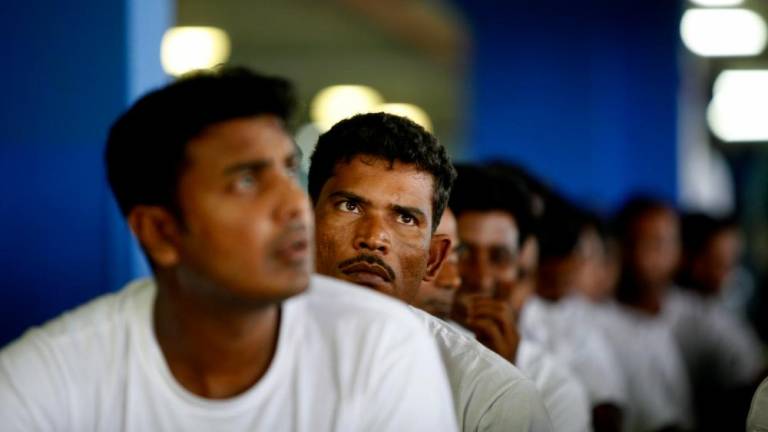KUALA LUMPUR: In 1994, Yohanes Mbenu, 48, paid an Indonesian agent on Flores Island the equivalent of RM1,500 on the promise that the agent would get him a job in Malaysia.
Apart from the fare, the fee was also to cover the cost of getting a passport and work visa.
Mbenu is one of the lucky ones. Not only did he land in Malaysia, but he also landed a job as a store manager in Selangor.
Today, an Indonesian looking to work in Malaysia will have to pay the equivalent of RM10,500. Most borrow heavily to get the start to what they believe is a dream job.
Unfortunately, the dream quickly turns into a nightmare for most. It could take them almost a lifetime to repay the debt. Worse than that, they face abuse in various forms.
Migrant workers complain about the steep increase in “processing fees” they have to pay to the agents, some of whom are nothing more than human traffickers.
Fees vary from country to country.
James Bawi Thang Bik, 26, said an agent would charge the equivalent of RM3,000 to take someone from Myanmar across the border into Thailand and then Malaysia. The trip could take three to five days, by land and sea.
Once they arrive in Malaysia, the agents would retain their passports to prevent them from fleeing unacceptable work conditions. Workers are forced to work overtime excessively.
Wages are reduced without explanation, leading to heavy indebtedness to labour brokers, according to Tenaganita member Joseph Paul. Tenaganita is a human rights organisation dedicated to the protection of women, migrants and refugees.
Even so, migrant workers take the abuse silently, working diligently for the day when they are able to return home with a decent amount of money stashed away.
But the Covid-19 pandemic changed everything.
Thousands of migrant workers have not been able to work since the movement control order (MCO) was imposed on March 18, and some have already resorted to asking their families back home to send them money.
Bangladeshi worker Hossain Kabir said since the MCO, jobs have been scarce.
Hossain, who has been in Malaysia for more than 10 years, said many of them have no choice but to depend on their loved ones in Dhaka to send money for food.
“We have not been able to go to work for two months. Worse still, we’ve been told that we are also not allowed to leave our flats.”
To compound matters, the government’s recent announcement that employers must improve living conditions for migrant workers has been met with hostility.
Migrant CARE, another organisation that looks into the needs of foreign workers, pointed out that Malaysia still needs migrants to sustain its economic development. Its coordinator Alex Ong said only such workers would take on certain jobs for low wages.
Migrant Workers Right to Redress Coalition chairman Rani Rasiah recently said the need to address the issue has never been more urgent than now, given the risks of a widespread contagion of Covid-19.
Tenaganita’s Joseph has proposed that interest groups work with the government to meet migrant worker needs. He claimed migrant workers listed as “undocumented” had entered the country legally.
He said the “erroneous” description was due to failures in the process of recruitment and management of migrant workers.
Read this story on our iPaper:
















